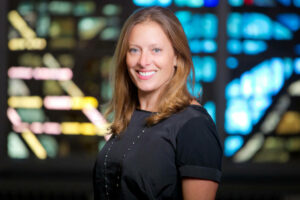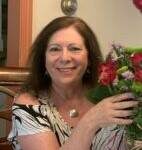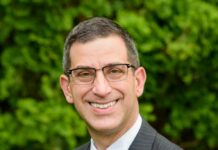
(Yael Pachino Photography)
Rabbi Geri Newburge
Parshat Toldot
There are two brothers who lived on the sides of the same mountain. One was rich but had no children; the other had many children but was very poor.
One evening, the wealthy brother thought, “I have so much, and my brother has so little. Let me secretly cross the mountain in the middle of the night and bring my brother extra crops so he has enough for his family.”
At the same time, on the other side of the mountain, the poor brother considered the plight of his brother: “I am blessed with children who bring me great joy and who will take care of me as I grow old, Let me secretly bring my brother some of my crops so he could have a little extra support in this world.”
And so it went every night: Each brother secretly crossed the mountain to bring his brother an additional complement of harvest. Every morning the brothers would inspect their stock to learn nothing was missing. Neither could explain the phenomena, but every morning they thanked the Holy One for this kindness and continued doing their good deed every night.
After years of this routine, a schedule change occurred. Instead of the two brothers missing each other in the middle of the night, there on top of the mountain, the two brothers met. They looked at each other in surprise and then realized what had been happening for all this time. They embraced and cried for joy.
It is taught that this is the precise location where the Holy One decided to build the Beit Hamikdash, the Holy Temple.
What we read in this week’s parsha, Toldot, is the antithesis of the loving tale of the brothers. It is the story of the birth of Jacob and Esau, and even when they are in their mother Rebecca’s womb, they are contentious. Rebecca worries about her exceedingly difficult pregnancy. The Torah states, “But the children struggled in her womb, and she said, ‘If so, why do I exist?’ She went to inquire of the Eternal.”
The rabbis interpret the Hebrew word for “struggle” as an expression of running, a play on the Hebrew for both words. They elaborate on this idea in Genesis Rabbah, “When she passed by the entrances of the Torah academies of Shem and Eber, Jacob would run and struggle to come out; when she passed the entrance of a temple of idolatry, Esau would run and struggle to come out. Another explanation: They were struggling with each other and quarreling about the inheritance of the two worlds.”
Regardless of the interpretation, it was clear from early on that Jacob and Esau experienced and related to the world in very different ways. Jacob is said to be mild-mannered and a shepherd; Esau is a man of the outdoors and a skillful hunter.
The rest of the parsha details critical challenges in their relationship — Esau selling his birthright for a bowl of stew, Jacob stealing the special blessing their father intended for Esau, and Esau’s reaction to this loss. These are not the brothers who care for one another in the middle of the night.
As I write this, we are into the second month of the Israel-Hamas war. The struggles are enormous, and the fundamental desire to inherit the land has proven to be, again, a murderous reality instigated by the terrorist group Hamas. While the nuances of the relationship and character of our ancestors Jacob and Esau can be debated, there can be no such discussion about the violent acts perpetrated on innocent people on Oct. 7, 2023.
Worst of all, the situation feels enormously hopeless. And yet, later in Genesis, Jacob and Esau are reunited. There is great uncertainty in the moments leading up to their meeting: Will it once again be contentious, or will the past resolve itself and lead to an amicable reunion? According to the text, the encounter is positive and shortly thereafter they bury their father Isaac — together.
Perhaps we, too, will find a way to coexist, to move past the trauma of our most recent experience, and to find a way to honor our shared history and land and be able to live like the two brothers in the midrash.
Rabbi Geri Newburge serves at Main Line Reform Temple-Beth Elohim in Wynnewood. The Board of Rabbis of Greater Philadelphia is proud to provide diverse perspectives on Torah commentary for the Jewish Exponent. The opinions expressed in this column are the author’s own and do not necessarily reflect the view of the Board of Rabbis.





